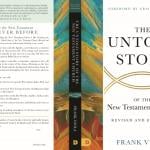In the current issue of Mars Hill audio magazine, Ken Myers, quoting from Craig Gay, makes the important point that modernity is defined not so much by its aspiration to control as by the means it uses to achieve control. Instead of seeking to control reality with magic or prayer, as some “traditional” societies might do, moderns employ technical and rational means to manipulate reality. Read more




















